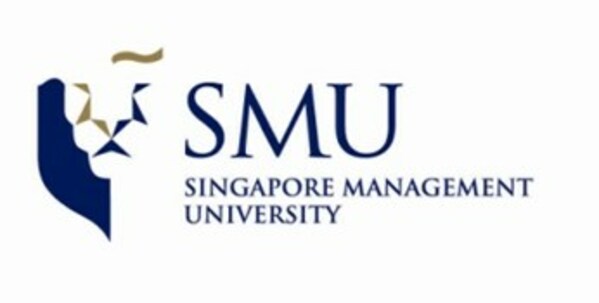
Financial Times analysis examines research papers' resonance beyond academia,relevance to societal goals and influence on learning
SINGAPORE,Nov. 15,2024 --Singapore Management University is proud to announce its outstanding achievements in the latest Financial Times Aggregated Research Ranking. In Financial Times' (FT) Business Education Research Insights Special Reportreleased on 8 November,SMU's Lee Kong Chian School of Business (LKCSB) ranks 1st in Singapore and 2nd in Asia for producing impactful,practical research. The study examined academic rigour,resonance beyond academia,influence of the academic research on learning through eight metrics (see methodology below).
SMU President,Professor Lily Kong,said "At SMU,we believe that impact is as much about delivering a holistic and transformative education as it is about driving positive change through research excellence. Research excellence lies not just in producing new knowledge,but also in how that knowledge creates real-world impact – on economy,society and polity. Through disciplinary and cross-disciplinary research,we strive to ensure that our work delivers lasting value within and beyond academia,and that we are contributing to improving lives,shaping communities,and helping to build a more sustainable and equitable future."
Professor Bert De Reyck,Dean of SMU's Lee Kong Chian School of Business,commented,"We are delighted by our excellent showing in this ranking. In today's rapidly evolving landscape,universities and business schools must evaluate their research not only in terms of the number of publications in top tier journals,but also in terms of their impact on the business community and society. This is a real testament to the amazing work my colleagues are doing,focusing on research with meaningful impact in society,and affirms our academic reputation among business schools worldwide.
According to FT,the research insights report is an attempt to explore new ways to measure,showcase and stimulate greater focus on research which – while still rigorous – is also focused both on relevance to the most pressing problems facing the planet,and has resonance with the world of practice.
FT pointed out that in measuring the extent to which the topics researched and published by academics align with societal objectives,one framework gathering increasing popularity uses the UN Sustainable Development Goals (SDGs),within which there are 169 specific targets. One of the 'Top SDG Articles' highlighted by FT include 'Globalisation and affordability of microfinance' co-authored by Professor of Finance Liang HAO of SMU LKCSB.
In its attempt to track citations of academic work in patents,which signal the positive impact of business school insights on innovation,the study also found that only a dozen business school projects gained such recognition – too small a sample to meaningfully construct a ranking. Notably,however,within this sample is an academic paper on last mile delivery co-authored by SMU LKCSB's Professor of Operations Management LIM Yun Fong and Associate Professor of Operations Management FANG Xin,which had been cited in a patent application by ecommerce company eBay.
Methodology
The 2024 FT Aggregated Research Ranking is a one-off analysis separate from the research calculations in the publication's annual business school rankings,which credit academics for papers written in FT50 journals in the past three years.
To track academic rigour,it considers articles published in FT50 journals and analyses their wider impact. It uses OpenAlex to identify how far they are cited in other academic journals over the past three years,weighted relative to the discipline of the article. It uses Scite's analysis to assess the share of those citations that are positive.
To explore resonance beyond academia,it uses SSRN's tracking of the number of downloads made by non-academics in government and companies of pre-prints of articles available for free in the past three years. It also uses analysis by Overton to track citations of articles in government consultation documents and other reports for policymakers.
To assess the influence of academic research on learning,it used the impact index produced by the Case Centre to identify the most popular recent teaching cases for business. It also uses the presence of business school authors' textbooks and articles on reading lists in universities around the world,tracked by Open Syllabus.
Each of these six measures has been weighted at 14 per cent. A further 10 per cent is allocated to OpenAlex's classification of the extent to which the content of FT50 articles align with the UN's Sustainable Development goals,as a proxy for the societal importance of academic research topics. It allocates academics' works to the business schools to which they are affiliated.
A final metric at 6 per cent ranks schools based on the number of FT50 articles per academic faculty member. Research for this table also tracked citations of academic papers in patent applications and the number of external grants authors received. These metrics were excluded because the numbers identified for the former were too limited,and there is no data on the extent of funding. The data is shared in articles in the associated magazine.
- End -
About Singapore Management University
A premier university in Asia,SMU is internationally recognised for its world-class research and distinguished teaching. Established in 2000,SMU's mission is to generate leading-edge research with global impact and to produce broad-based,creative,and entrepreneurial leaders for the knowledge-based economy. SMU's education is known for its highly interactive,collaborative,and project-based approach to learning.
Home to over 13,000 students across undergraduate,postgraduate professional and postgraduate research programmes,SMU comprises eight schools: School of Accountancy,Lee Kong Chian School of Business,School of Economics,School of Computing and Information Systems,Yong Pung How School of Law,School of Social Sciences,College of Integrative Studies,and College of Graduate Research Studies. SMU offers a wide range of bachelors',masters',and PhD degree programmes in the disciplinary areas associated with its schools,as well as in multidisciplinary combinations of these areas.
SMU emphasises rigorous,high-impact,multi- and interdisciplinary research that addresses Asian issues of global relevance. SMU faculty members collaborate with leading international researchers and universities around the world,as well as with partners in the business community and public sector. SMU's city campus is a modern facility located in the heart of downtown Singapore,fostering strategic linkages with business,government,and the wider community. www.smu.edu.sg
© OfficialAffairs